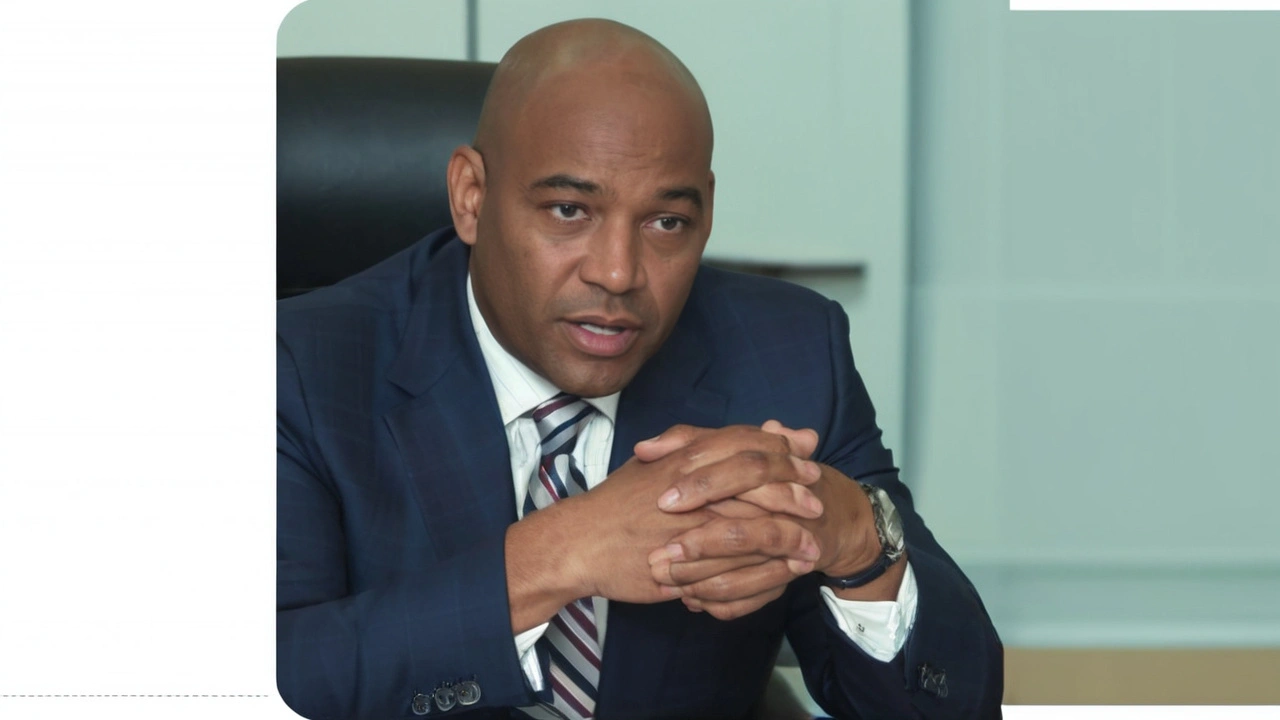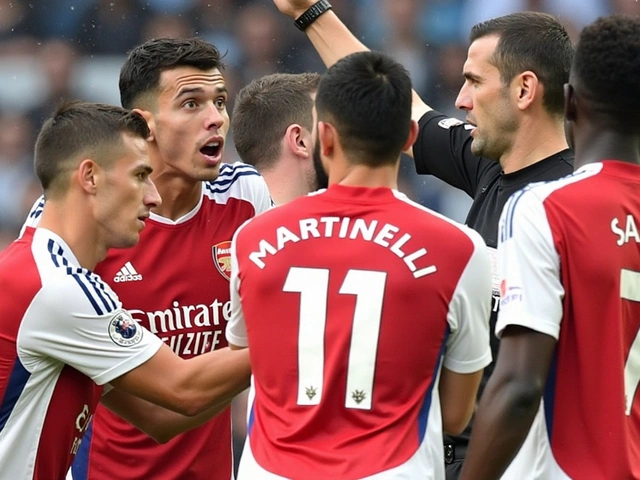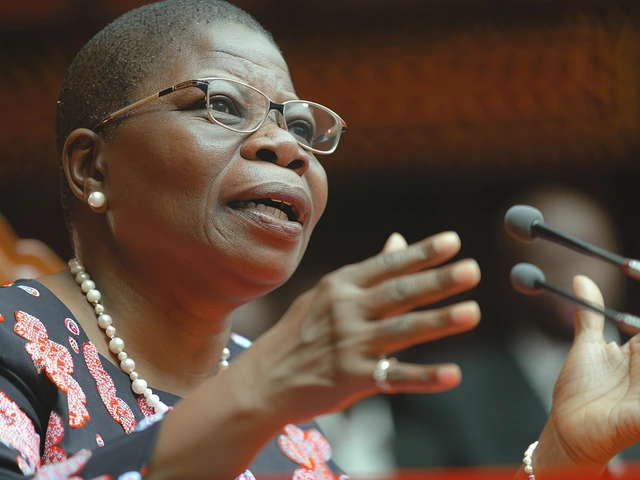
Viral Video of President Tinubu: Old Footage Misleading Public, Says Aide
Recently, a video of President Bola Tinubu pleading with Nigerians has taken social media by storm. The footage has generated a whirlwind of reactions from the public, ranging from sympathy to outright criticism. However, the issue has taken another turn as Bayo Onanuga, a presidential aide, stepped forward to provide context to the pervasive video, labeling it as old and misleading.
The Appearance and Spread of the Video
The contentious video shows President Tinubu addressing Nigerians in a manner that many found surprising and unorthodox for a man of his stature. Within hours of its appearance, the footage went viral, sparking intense debates about the state of leadership in Nigeria and President Tinubu's current policies. Social media platforms were awash with posts dissecting the video, and it quickly became a trending topic.
This virality brought with it a flood of opinions. Some Nigerians found themselves empathetic towards the President's plea, interpreting it as an earnest and humble approach to addressing the nation's pressing issues. Others were quick to criticize, deeming the video a sign of weakness and failure to adequately govern and manage the country's mounting challenges. Various hashtags related to the video trended on platforms like Twitter and Facebook, further amplifying the controversy.
Presidential Aide's Clarification
Stepping into the fray, Bayo Onanuga offered much-needed clarification. According to Onanuga, the video in question was not recent. It was an older recording, taken out of context to mislead the public and provoke unwarranted reactions. Onanuga emphasized that the resurfacing of this video in such a manner was an attempt to misconstrue President Tinubu’s actions and intentions, casting a shadow over his leadership unnecessarily.
Onanuga’s statements were designed to quell the storm of opinions and debates that had ensued. He urged Nigerians to be cautious about the content they consume and share, underlining the importance of verifying information before jumping to conclusions.
Public Reaction and Debate
Despite Onanuga’s efforts to put the record straight, public debate rages on. The video reignited discussions on pivotal issues facing Nigeria – from leadership to economic policies, and the government's responsiveness to the needs of its people. Skeptics question the timing of the video’s release, suggesting it may have been a strategic move by opposition groups to undermine the President. On the other hand, his supporters argue that the very act of begging, whether old or new, shows a leader in tune with his citizen's struggles.
The incident highlights a broader issue prevalent in today's digital age – the drive for virality often at the expense of accuracy. As more people consume news through social media, the dissemination of misleading information becomes easier and more frequent, resulting in public opinion being swayed on the basis of incomplete or inaccurate data.
Impact on Tinubu's Leadership
While the video may be old, its impact on President Tinubu’s image is fresh and potent. It has opened up conversations about his tenure and the effectiveness of his policies. Some political analysts argue that this incident, regardless of its misleading nature, may compel the President to address public concerns more openly and adopt more transparent communication strategies.
Across social platforms, opinions remain split. Those critical of Tinubu's leadership use the video to underscore perceived failures in governance, while his staunch supporters defend his policies and leadership style. The debate, now fueled by the video, speaks volumes about the broader political landscape in Nigeria and the diverse viewpoints within the populace.
The Role of Social Media in Shaping Public Opinion
The spread of this video is yet another example of how social media shapes public discourse. In the past, rumors and misinformation were relatively slow to spread, but in the digital era, a single piece of content can reach millions in a matter of minutes. This necessitates a more vigilant and critical approach to the information shared and consumed online.
Media experts often stress the need for both consumers and sharers of information to engage in fact-checking. With misinformation coming from numerous sources, discerning the truth becomes a crucial skill for the average internet user. Platforms have started to incorporate fact-checking features, but the responsibility still largely falls on individuals to verify the content they encounter.
Looking Forward: Leadership and Transparency
As Nigeria continues to grapple with its share of challenges, the clamor for more transparent and accountable leadership grows louder. Incidents like the spread of the old video of President Tinubu not only highlight the complexities of modern communication but also the expectations for leadership in a new age. The public demands a government that is not only effective but also in constant, clear communication with its citizens.
Bayo Onanuga's response to the video serves as a reminder of the importance of context in today’s information ecosystem. His statement has attempted to steer the narrative back on track, but the ripples caused by such a viral piece of content are hard to completely dissipate. It underscores the responsibility of leaders and their aides to actively partake in dispelling inaccuracies and ensuring that the truth prevails amidst the noise.
Conclusion: A Call for Caution and Clarity
The viral video of President Tinubu, though identified as old and misleading, has reopened significant conversations about leadership in Nigeria. It teaches a poignant lesson about the power of context and the rapid spread of information. As the country moves forward, it is clear that both the government and the people must embrace a culture of careful communication and critical consumption of information. In this era, where every citizen can be both a consumer and a distributor of information, wisdom in sharing and interpreting content has never been more pertinent.
19 Comments
Write a comment
More Articles

Man City vs Arsenal: Analyzing Key Decisions in a Thrilling 2-2 Draw at Etihad
The explosive match between Manchester City and Arsenal resulted in a dramatic 2-2 draw, marked by controversial decisions involving Kyle Walker, Jeremy Doku, and Leandro Trossard. Contentious calls by referee Michael Oliver played a significant role in shaping the match's outcome, stirring reactions from players, managers, and pundits.

Oby Ezekwesili Upholds Old National Anthem Amid Controversy over New Version
Former Minister of Education, Oby Ezekwesili, firmly opposes the newly signed national anthem endorsed by President Bola Tinubu. She pledges to continue singing the old anthem despite the new legislation. This move has sparked widespread debate on patriotism and the country's priorities amid economic challenges.

FC Barcelona Set to Earn €130 Million from LaLiga TV Rights for 2023/24 Season
FC Barcelona is expected to earn around €130 million from LaLiga television rights for the 2023/24 season, primarily due to their second place finish. The total revenue from television rights is about €1.5 billion, with a significant portion allocated to various non-professional football ventures. The remaining amount is distributed among the 20 LaLiga clubs based on their standings.
sunil kumar
August 8, 2024 AT 17:50Contemplating the digital age, one discerns that information behaves like an unfettered specter, haunting the collective consciousness.
The viral clip of President Tinubu, stripped of its temporal anchors, exemplifies the epistemic entropy that permeates contemporary media ecosystems.
When a fragment of history is recontextualized, it transmutes into a meme‑driven simulacrum that displaces veracity with affective resonance.
This phenomenon is not merely a trivial curiosity; it is a manifestation of Baudrillardian hyperreality, wherein the signifier eclipses the signified.
In such a milieu, the audience becomes an unwitting participant in a grandiose theatrical performance staged by algorithmic arbiters.
The aide's clarification, albeit earnest, operates within the same feedback loop, attempting to recalibrate the vector of public perception.
Yet the residual cognitive dissonance persists, akin to a lingering afterimage on the retina of collective memory.
Scholars of media theory have long warned that temporal dislocation engenders a fracturing of narrative continuity, leading to epistemic dissonance.
Moreover, the politicization of nostalgia serves as a strategic vector for factional actors seeking to weaponize sentimentality.
The very act of pleading, captured in antiquated footage, now reverberates as a signifier of vulnerability, irrespective of its chronological provenance.
This duality underscores the paradox of modern leadership: authenticity is both commodified and scrutinized.
As digital conduits amplify resonance, the velocity of misinformation outpaces our capacity for reflexive verification.
The imperative, therefore, lies not solely in debunking but in cultivating a meta‑cognitive resilience among the citizenry.
By fostering a culture of critical appraisal, societies can inoculate themselves against the viral contagion of miscontextualized narratives.
In sum, the Tinubu video episode is a microcosm of the broader dialectic between truth, perception, and the relentless churn of the information superhighway.